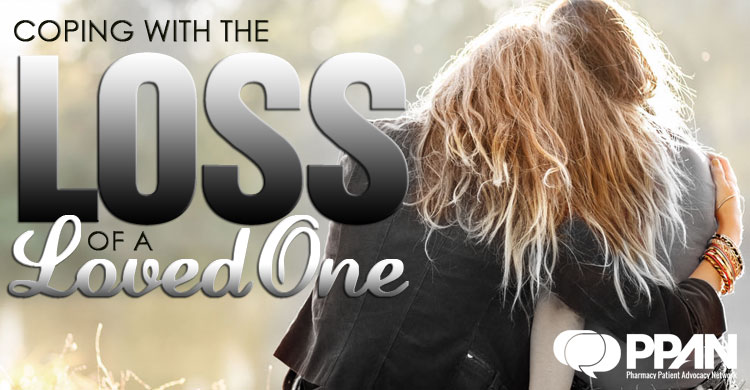Coping With the Loss of a Loved One
The process of coping with loss can be complicated and will always be a personal experience. Some individuals are better able to compartmentalize emotions while regaining joy for life, and there is no one path to grieving. This also means that there is not a set time span for establishing coping mechanisms, since this will vary based on personality. However, cultivating an awareness for emotions can also let individuals navigate the stages of grief with a healthier outlook that can lead to positive coping mechanisms.
Reactions and Actions
It is necessary for individuals to recognize that there are both positive and negative coping mechanisms. Both may initially result in what appears to be a valid strategy for the loss of a loved one, but the long term results can be very different. This is because negative coping does not allow for personal growth to arise from the situation, while positive coping accepts the loss and the sadness without destroying the individual.
Having an awareness of emotions and motivations can be the key to positive coping. This is because it allows people the opportunity to explore root causes in the emotional triggers, and by doing this, a healthy progression is able to follow. It also allows the grieving individual to stay empowered, as they are engaging in actions as a form of coping, rather than reactions, which can be both subliminal and sublimated. The personal empowerment is also necessary for having the ability to transcend the immediate feelings associated with loss and being able to move on from that point.
Stages of Grief
In order to establish positive coping skills, it can also be important that people are aware of the stages of grief, since this provides an appropriate outline of reactions and also lets the person witness the process more fully. Each of the stages will have individual responses that may not fully fit the generalized perspective, but the root emotions are still comparable. This factor also lets people see coping as a process rather than a specific event.
Denial and Isolation
This initial stage of grieving can be relatively brief, although aspects of the reaction may still be present throughout the process. While denial and isolation are frequently grouped together as a response to the loss, they also represent a mental formulation. The sense of disbelief, unwillingness to accept, and inability to engage others emotionally are all a part of the defense mechanisms that the psyche puts up when it first encounters the reality of loss. The motivation behind this response is a form of magical thinking that insists that if the event is not acknowledged, then it will not have happened.
Issues arise when a person persists on this belief for an extended period of time, rather than approaching the reality as a blunt fact. The brain can try to compartmentalize the loss, but this will also generate an emotional boundary that is counter to moving forward. People should attempt to become involved with group therapy for grieving, as this creates a scenario where the individual will be able to connect with others over a shared experience, and it will necessitate acknowledging the loss.
Anger
This stage is ultimately motivated by needing to feel in control. The anger that is felt over the loss of a loved one can be directed at anyone, including family members, medical staff, and even the person who has passed. For the individual who is in the process of coping, it actually represents another facet of acceptance, since letting go of the anger also means acknowledging the loss.
Positive skills during this phase can include finding positive outlets for the anger. It is important to note that suppressing the feelings is actually a negative coping tactic, since it does not allow for the stage to be worked through. Instead, it is actually encouraged that people let the anger out, but that they direct it to a beneficial outcome. This can frequently be achieved through such actions as:
- Counseling
- Journaling
- Exercising
- Creative actions
The first two options can be ideal for personalities that gain insight from self analysis. The second two options may be better suited towards people who feel that their anger is directionless, as it allows for a positive outlet for the energy to be expressed.

Bargaining and Depression
Both of these stages are still closely related to anger, as they involve the desire to regain control and the sense of helplessness that can arise when reality is faced. Therapy and creative actions can be ideal positive coping skill in both of these stages, since it allows the individual to establish true boundaries and release the sense of guilt that often comes just from being the person who has survived.
These stages can also benefit from social engagement. Many people find it positive to volunteer or be of service to others during this period, as it keeps them emotionally connected to others and allows for an expression that can counter the sense of guilt which is hidden behind the act of bargaining. These actions also establish a sense of empowerment and self control that is not necessarily reliant upon the ability to control a situation. In showing service to others, the individual is also able to view loss as an eventuality that is universal, rather than a personal condition.
Connection with others is also necessary in overcoming depression and establishing a sense of hope. Daily routines can become a vital part of the process, as they reinforce that life and joy are still a part of everyday function, and can keep individuals from staying caught in a state of loss.
Acceptance
As the last stage of grieving, many people have the misconception that acceptance means that the loss no longer matters. The truth is that the loss of a loved one will always have an emotional impact, it is simply a matter of whether the individual is more able to embrace the joy and feel the sadness, rather than living in the stagnation of grief.





